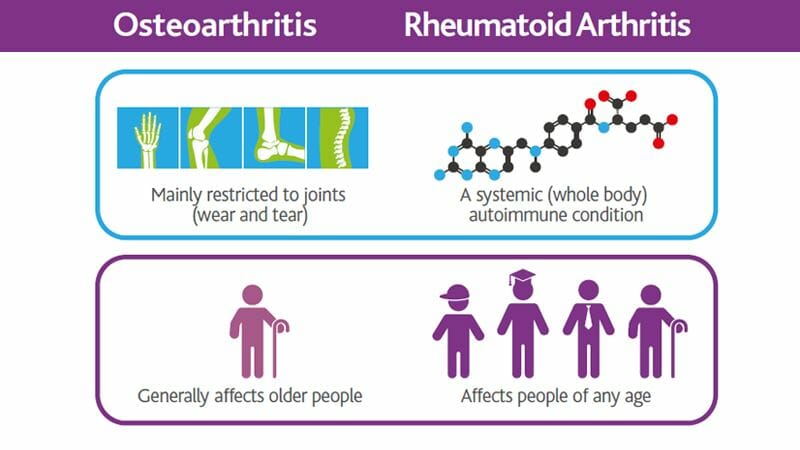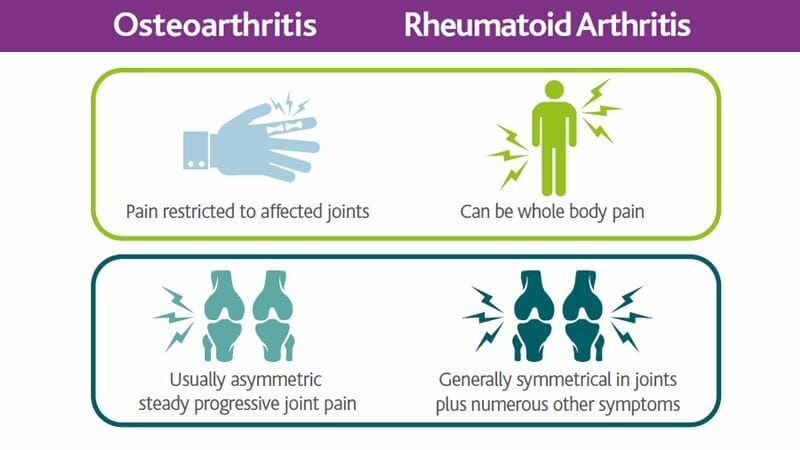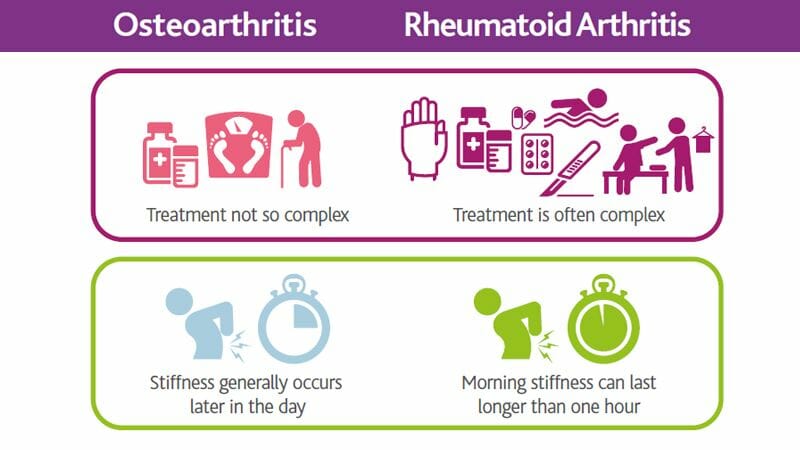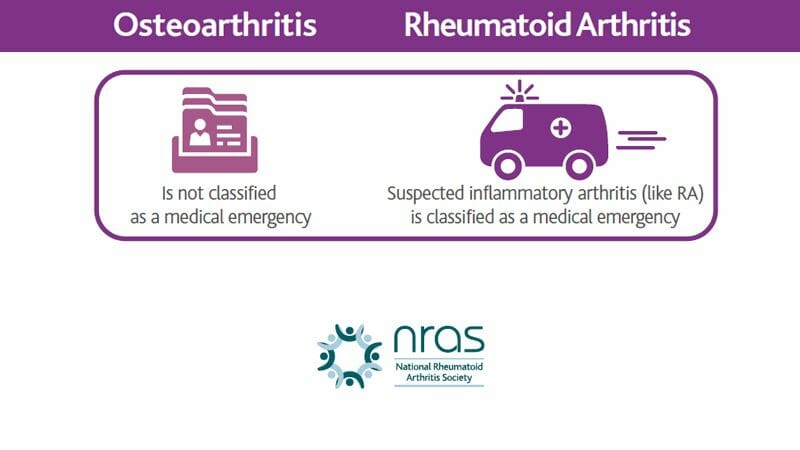There are many misconceptions around Rheumatoid Arthritis, namely that it is commonly overlooked as distinct from other forms of arthritis. This presents a lot of challenges for those living with it, particularly when it comes to being able to openly discuss Rheumatoid Arthritis and educate others.
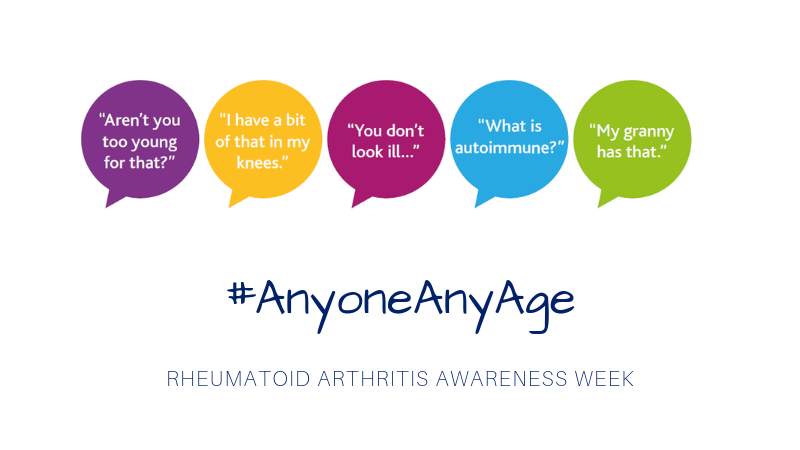
What is Rheumatoid Arthritis?
Rheumatoid Arthritis is an autoimmune disease, which is where the body’s immune system attacks healthy tissues. This particular disease attacks the lining of your joints and causes inflammation, which can lead to pain, stiffness and fatigue. It is, however, also a systemic disease that can affect your body’s entire system, including your organs.
Where osteoarthritis generally affects people in older age, rheumatoid arthritis can affect people of all ages. Unfortunately, this means that the symptoms can often go undiagnosed and are sometimes put down to other lifestyle factors, particularly where symptoms most commonly involve joint pain, stiffness and swelling. Other symptoms, however, can involve fatigue, sweating, lack of appetite or chest pain.
Common Symptoms of Rheumatoid Arthritis
The National Rheumatoid Arthritis Society (NRAS) recommends that the important signs and symptoms to be aware of are:
- Pain, swelling and possibly redness around your joints. Hands and feet are often affected first, though Rheumatoid Arthritis can start in any joint.
- Stiffness in your joints when you get up in the morning or after sitting for a while, which lasts for more than 30 minutes and has no other obvious cause.
- Fatigue that’s more than just normal tiredness.
If you have any of these symptoms, go and see your GP. The sooner Rheumatoid Arthritis is diagnosed and treated, the better the long-term outcomes are likely to be.
What is the difference between Osteoarthritis and Rheumatoid Arthritis?
For more information on signs and symptoms of Rheumatoid Arthritis please click here.
Living with Rheumatoid Arthritis
NRAS also has a section on the website dedicated to people living with rheumatoid arthritis (RA). It includes booklets and articles about the emotional aspects of living with RA; information on diet, smoking, sleep and exercise; and tips on how to make living with RA easier.
We’ve compiled some of their most useful tips:
- Put rubber bands round your toothbrush handle so it doesn't slip through stiff fingers in the morning.
- If you have problems squeezing shampoo and conditioner bottles, buy empty soap dispensers, fill with shampoo or conditioner and label.
- Use nut-crackers (the type with inside serrations) to unscrew small bottle tops or use masking tape to wrap around lids that are smooth and shiny to get better grip.
- A piece of ribbon or loop of elastic tied to a zip fastener can make it easier to grip to pull up and down.
- Use a steamer or microwavable packs for cooking vegetables instead of lots of saucepans as there is no weight involved when draining the vegetables.
- Use a lightweight hand-held vacuum when cleaning stairs and upholstery.
- To turn a key, place a skewer through the hole in the key to provide leverage.
- To help you to pace yourself, try using a weekly planner diary to plan in activities using a traffic lights system, with red for an activity you will find tiring, and green for more simple or enjoyable, and amber in between. That way you can make sure that you do not have too many ‘red’ activities on the same day.
For more tips and information, please visit 'NRAS - Living with RA'.
Treatment for Rheumatoid Arthritis
It is not yet known what triggers the body’s immune system to attack tissue and there is currently no cure for the disease, although early treatment and small lifestyle changes can help to reduce the risk of further problems or joint damage. Some treatment options include:
- Long-term medication to relieve symptoms and slow the progress of the condition.
- Physiotherapy and occupational therapy can help keep you mobile and provide practical advice for managing at home and everyday activities.
- Surgery to correct any joint issues that develop.
If you are concerned around symptoms that could be related to Rheumatoid Arthritis, you should contact your GP.
At Horder Healthcare, we can provide a range of supporting physiotherapy treatments to complement the ongoing management of Rheumatoid Arthritis. Our physiotherapists are experts in treating conditions such as arthritis, as well as those affecting the muscles and joints.



